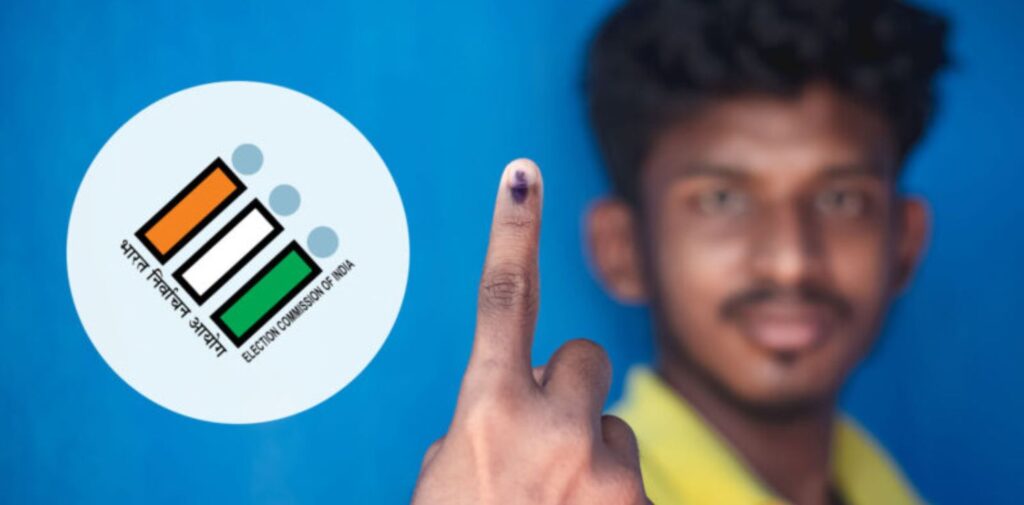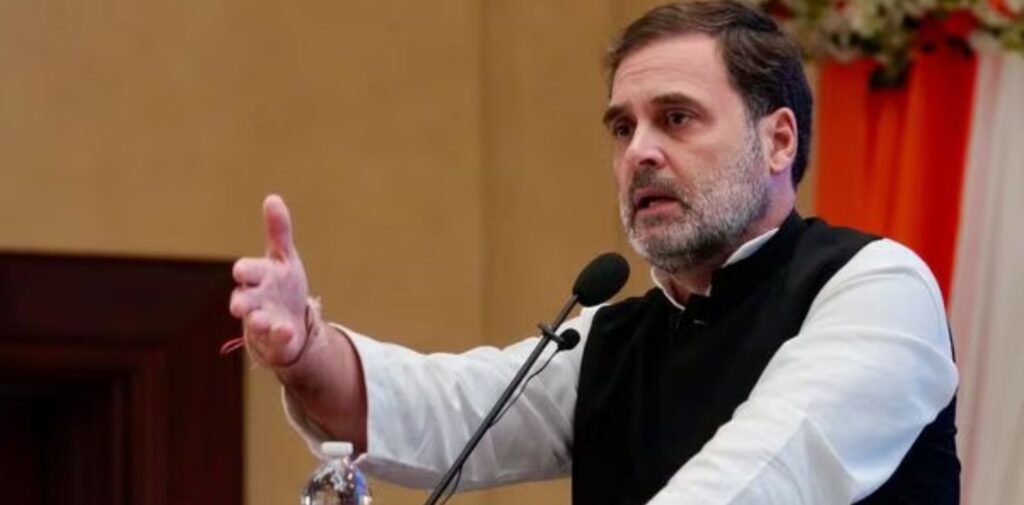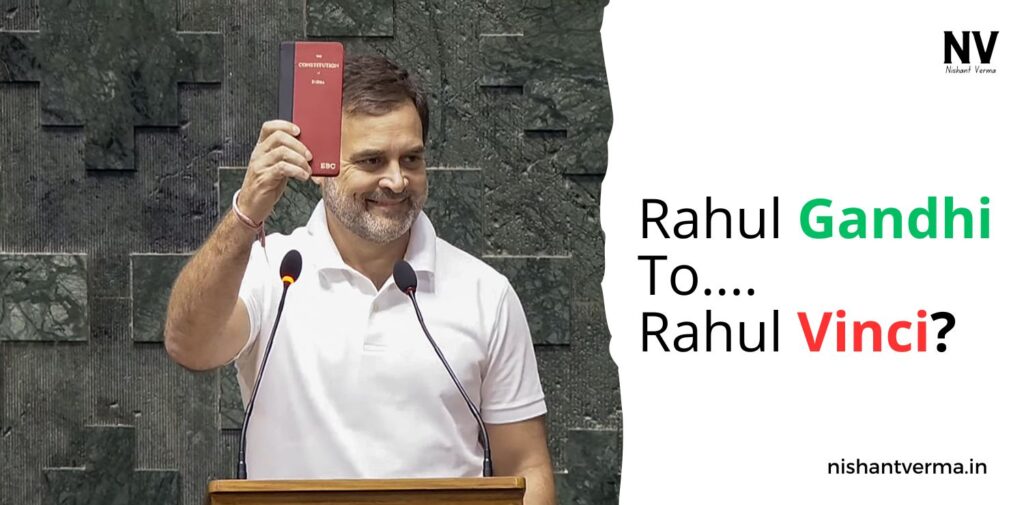The topic of Rahul Gandhi dual identities has been the center of controversy and debate for many years. His name “Raul Vinci” is alleged to be an alias used during his time at Cambridge University, sparking concerns over his nationality and eligibility to contest elections in India. Despite being known as Raul Vinci internationally, Rahul Gandhi was still allowed to contest elections in India—a fact that raises serious questions about the integrity and transparency of the Election Commission of India (ECI).
The Dual Identity Controversy: Why It Matters
Rahul Gandhi, a prominent figure in Indian politics and the de facto leader of the Congress party, is known globally by his birth name. However, during his educational stint at the University of Cambridge, he allegedly used the name “Raul Vinci” to maintain privacy and security due to his family’s political background. While using an alias is not inherently problematic, it becomes a matter of concern when such aliases lead to questions about nationality and eligibility for public office.
Using a different name abroad is one thing, but the allegations that he was registered as a foreign citizen have raised eyebrows. The implication here is that the Congress party leader might not have been eligible to hold office in India. According to Indian laws, only Indian citizens can contest elections and hold positions of power. So, why did the Election Commission of India (ECI) turn a blind eye to this discrepancy?
Nationality, Citizenship, and Eligibility: What Do the Rules Say?
The Representation of the People Act, 1951, governs the eligibility of individuals contesting elections in India. It mandates that any candidate must be an Indian citizen. If Rahul Gandhi was registered as a foreign citizen during his time at Cambridge, his eligibility would be questionable. The ECI, responsible for overseeing and conducting elections, should have looked into this matter thoroughly. The lack of action raises concerns about the ECI’s impartiality and the influence of powerful political figures.
If Rahul Gandhi, under the alias of “Raul Vinci,” was indeed registered as a foreign citizen, it should have been flagged during his nomination filing process. However, the ECI has remained silent on the issue, leading to suspicions of bias or negligence. This calls for an in-depth investigation to ensure that the rule of law is upheld and that no one, regardless of their political standing, is above the law.

Implications of a Foreign Citizen Contending in Indian Elections
Allowing a foreign citizen to contest elections not only undermines the democratic process but also questions the sovereignty of the country. If it is proven that Rahul Gandhi was not an Indian citizen at any point while he held office, then every decision, every policy, and every vote in his favor would be invalid.
The Congress party, too, must be held accountable for supporting a candidate whose citizenship status was under question. The party has historically been one of the pillars of Indian democracy, and such an oversight tarnishes its image and credibility.
What Should the Election Commission Have Done?
The Election Commission of India is entrusted with ensuring free and fair elections. It is their responsibility to scrutinize candidates’ backgrounds and ensure their compliance with Indian laws. In Rahul Gandhi’s case, the ECI should have demanded clear proof of his citizenship status before allowing him to contest elections. Given the high-profile nature of the candidate, even a minor discrepancy should have been thoroughly investigated.

If the ECI had raised these concerns early on, it could have avoided the current controversy and the questions regarding its impartiality. The transparency of democratic institutions is critical, and in this case, the ECI’s lack of transparency has led to a situation where one of the country’s most prominent political leaders is under a cloud of suspicion.
Criticisms of Congress and Rahul Gandhi’s Silence
The Congress party has largely remained silent on this issue, dismissing it as a political stunt by opposition parties. However, the lack of a clear response from Rahul Gandhi and his party only adds fuel to the fire. If there is nothing to hide, then why not address these concerns openly and transparently? This silence is seen by many as an admission of guilt or at least a sign that there is something amiss.
The Congress party’s strategy of brushing the issue under the carpet has backfired, leading to a decline in public trust. Many believe that the party should have taken a more proactive approach, presenting all necessary documents and clarifying the situation once and for all.

The Role of Media and Public Opinion
Media outlets and social platforms like Quora have been rife with discussions about Rahul Gandhi’s dual identity. While some view it as a non-issue, others see it as a blatant violation of Indian electoral laws. The issue has also sparked a larger debate about the transparency of Indian political processes and the power dynamics that allow influential individuals to bypass rules.
The role of public opinion cannot be underestimated. Many believe that the Election Commission and the Congress party owe it to the citizens of India to come clean on this issue. The demand for clarity is not just a matter of political rivalry but a question of integrity and fairness in Indian democracy.
Conclusion: What Lies Ahead?
The controversy surrounding Rahul Gandhi’s alleged dual identity as “Raul Vinci” is not just about one individual or one party. It is about the integrity of India’s democratic institutions and the processes that ensure fair and transparent elections. The Election Commission of India must investigate this issue thoroughly and provide clear answers. If there is indeed evidence that Rahul Gandhi was a foreign citizen at any point, it must take appropriate action.
For Rahul Gandhi and the Congress party, addressing this issue openly would go a long way in restoring public trust. The silence and evasion have only led to more questions, and the longer they wait, the worse it will get.
This issue should serve as a wake-up call for all political parties and institutions in India. The rule of law must apply equally to everyone, regardless of their status or influence. Only then can we ensure that Indian democracy remains robust and untarnished.




